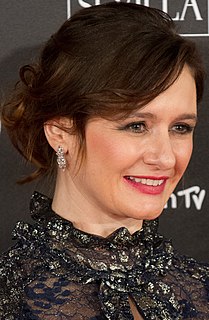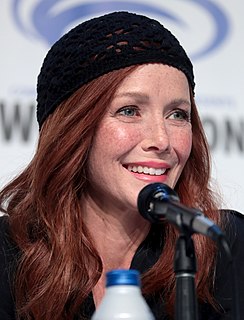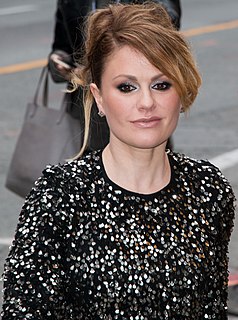A Quote by Emily Mortimer
It's a hard thing to do, to be given a script, and know that you've got to turn up on the first day of the shoot - generally without having had any rehearsal - and present a character. It's really baffling; it's incredibly hard to know how to begin, to approach it, other than just thinking about it.
Related Quotes
I believe ability can get you to the top,” says coach John Wooden, “but it takes character to keep you there.… It’s so easy to … begin thinking you can just ‘turn it on’ automatically, without proper preparation. It takes real character to keep working as hard or even harder once you’re there. When you read about an athlete or team that wins over and over and over, remind yourself, ‘More than ability, they have character.'
...when I came back, I found Mom sobbing at the kitchen table...Then I asked her what had happened. 'Nothing,'she said. 'I was thinking about that man...I started thinking about...if he and his wife and their other child are okay, and I don't know. It just got to me.' 'I know,' I said, because I did know. Sometimes it's safer to cry about people you don't know than to think about people you really love.
I was an only child growing up, and my father passed away when I was twelve, so for most of my life, it was just me and my momma. We were really, really close. Learning to live in the world without her has been incredibly hard. At first, it didn't make any sense - how to do it, to live without her - but you slowly get somewhat used to it.
I just couldn't believe that it [Into the Forest script] had fallen into my lap, because I felt so incredibly connected to my character, and I understood her, and I really...I haven't had that feeling about a script since I had read Thirteen or The Wrestler when I was just like, "No one else can do this." I just feel so passionate about it.
What I like is having a conversation that gets you on the right page. And, if that means having conversations in lieu of rehearsal - I don't wanna get up and cook the thing before we shoot it but I do wanna know that me and the director know exactly what we both want to achieve, and that we're moving in the same direction.
I was about 20 when my mom got sick with cancer and it was bad. It was very scary and at the time I was doing my first screenplay and I was on deadline and was alone with my father in Massachusetts. I said, "Pop, you know, I don't how I'm going to work. I don't know how I can get this done. You know, I got to hand this script in and I can't think about anything but Mom." He said, "Well, you know, now is the time when you're going to learn what it means to compartmentalize." And those words really had an impact on me.
You cannot begin to imagine the shock I had when I came down on the floor for the first time. First of all, there's this whole thing about playing sitcom comedy. I didn't want to do the sitcom thing, but I didn't know what else to do. I went slowly. We went through the week of rehearsal, then we got on the floor with the cameras, which I'm used to because of my experience in the old days. Then came camera day, with an audience, and it was stunning, enthralling, exciting and chaotic. I had never experienced anything like that before, as an actor. I was part minstrel, part actor.
I've read something that Bill Gates said about six months ago. He said, ‘I worked really, really hard in my 20s.’ And I know what he means, because I worked really, really hard in my 20s too. Literally, you know, 7 days a week, a lot of hours every day. And it actually is a wonderful thing to do, because you can get a lot done. But you can't do it forever, and you don't want to do it forever, and you have to come up with ways of figuring out what the most important things are and working with other people even more.



































